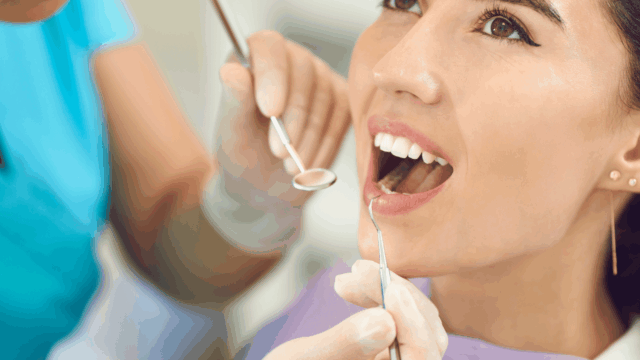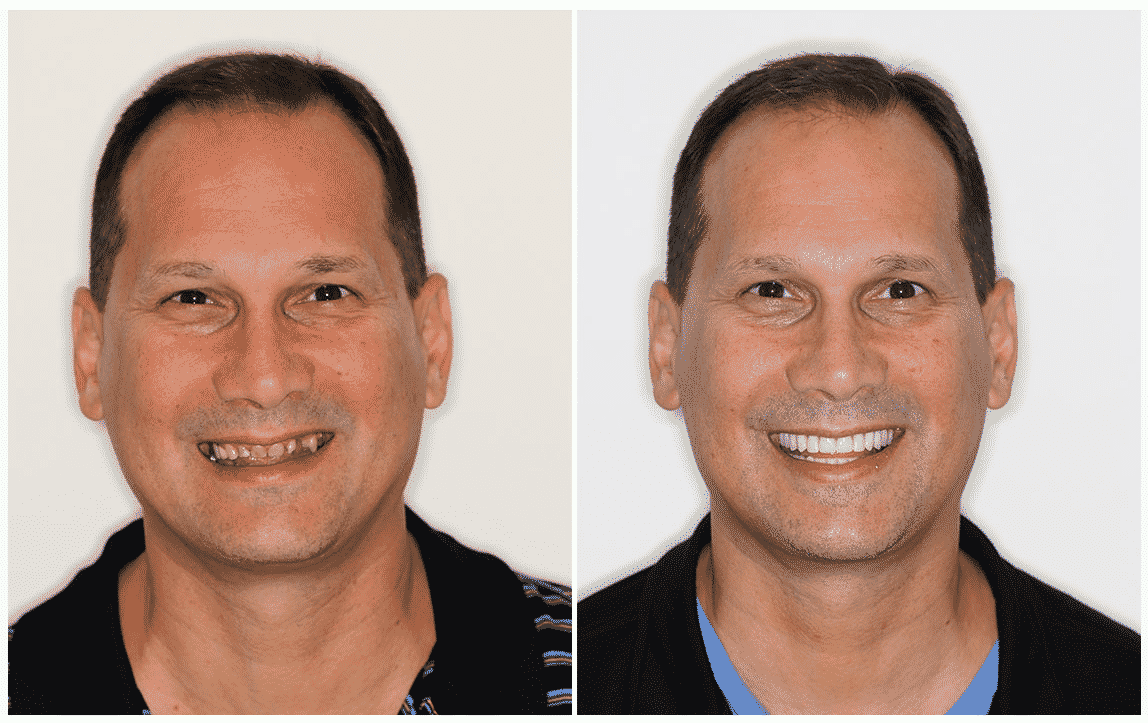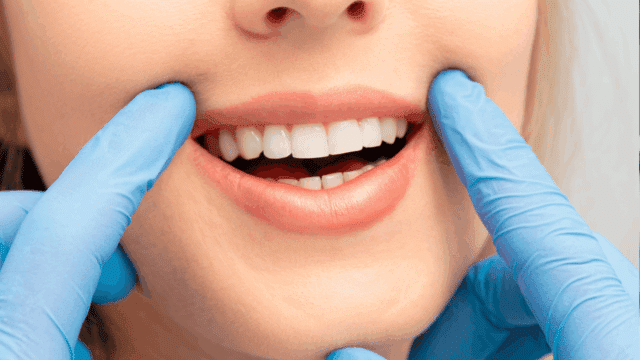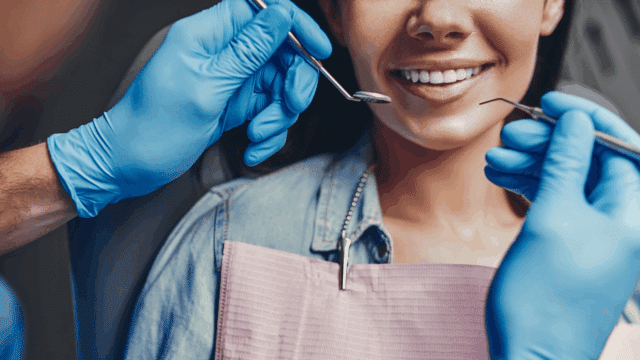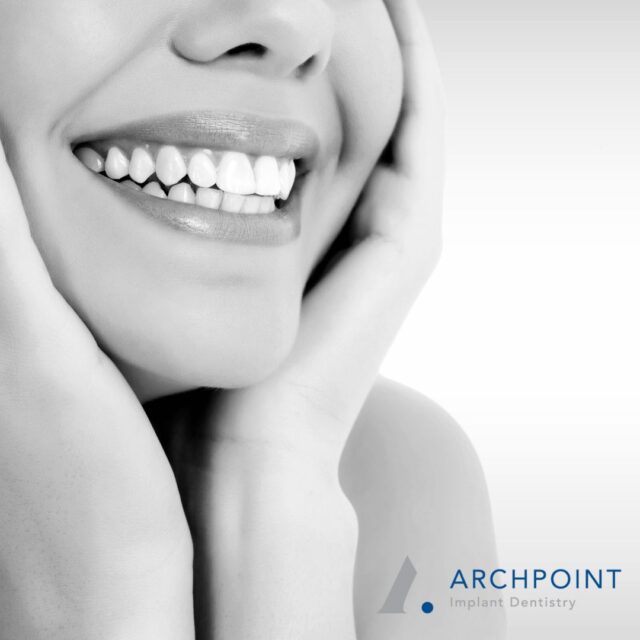Opting for dental implants provides plenty of functional and aesthetic benefits. However, the material you choose can affect the overall results. While dental practices can offer more than one option, the most popular options are porcelain and zirconia.
Understanding the differences and comparing porcelain vs. zirconia implants will help you make the best choice for your long-term oral health, comfort, and confidence.
If you are ready to explore advanced dental implant options, ARCHPOINT Implant Dentistry is here to guide you. Call 214-446-5378 to schedule your complimentary consultation or request an appointment online.
Why Does the Implant Material Matter?
Getting dental implants is an invasive procedure. After each implant is fused to your jawbone, it can support dental functions while providing you with a seamless, natural smile. Your choice of material can impact the strength and durability of your implant. It also affects how it appears when you smile.
What Are Porcelain Implants?
Porcelain has long been used in dentistry, especially in crowns, veneers, and bridges. When applied to implants, porcelain is typically used as the restorative crown, the visible part of your replacement tooth. Porcelain mimics the natural translucency and shine of natural enamel, making it a gold standard for cosmetic restorations.
| Advantages | Potential Drawbacks |
| Natural Aesthetics: Porcelain reflects light in a way similar to tooth enamel. This makes it recommended for visible teeth, such as those in the front of your mouth. Customizable Shades: Your porcelain implant crown can be color-matched precisely to your surrounding teeth. Proven Track Record: Porcelain has been used successfully in dentistry for decades, making it a trusted and predictable option. | Brittleness: Porcelain is more brittle than zirconia, so there is a slightly higher risk of chipping or cracking. This may make it more prone to damage in patients who grind their teeth. Less Durable for Back Teeth: In high-pressure areas like molars, porcelain restorations may wear down faster. |
What Are Zirconia Implants?
Zirconia, also known as zirconium dioxide, is a newer material in implant dentistry. However, it is becoming more popular because of its durability, often considered “ceramic steel” for its strength and resilience.
Zirconia can be used as both the implant post and the crown material. This provides patients with a metal-free option suitable for those seeking holistic or biocompatible solutions.
| Advantages | Potential Drawbacks |
| Exceptional Strength: Zirconia is highly resistant to fractures and damage from everyday wear and tear. This makes it ideal for patients who want to invest in longevity. Biocompatibility: This material integrates well with your bone and gum tissue, reducing the risk of inflammation or allergic reactions. Metal-Free Option: Zirconia implants are a recommended material for patients with metal sensitivities or those who prefer non-metal solutions. Aesthetically Pleasing: While not as translucent as porcelain, zirconia is still tooth-colored and offers a natural look when used with modern enhancements. | Less Translucent: Zirconia crowns do not always replicate the same level of shine and light reflection as porcelain. This makes implants more noticeable, particularly in highly visible areas. Cost: Because zirconia is a newer technology and more difficult to manufacture, it may come at a slightly higher price point. |
Porcelain vs. Zirconia Implants: Key Differences
When weighing porcelain vs. zirconia implants, it is important to consider your personal goals, lifestyle, and the specific needs of your smile. Talking to an experienced implant dentist can help you get solid recommendations based on the features you need:
| Feature | Porcelain Implants | Zirconia Implants |
| Aesthetic Quality | Highly natural and translucent | Natural-looking but less translucent |
| Strength & Durability | More brittle, better for front teeth | Extremely strong, ideal for back teeth and full-mouth cases |
| Biocompatibility | Good, but can require metal support | Completely metal-free |
| Cost | Generally lower | Higher due to advanced manufacturing |
| Best For | Patients prioritizing aesthetics in visible areas | Patients needing strength, durability, or holistic solutions |
Choosing the Right Material for You
While your dentist can recommend the best option, your decision should reflect factors like your lifestyle, oral health history, and long-term goals.
- If your priority is a perfect, natural look in highly visible teeth, porcelain may be your best option.
- If you grind your teeth, need implants in your back molars, or want a completely metal-free solution, zirconia is the clear winner.
However, you do not have to choose one or the other. For many patients, a hybrid solution of zirconia implant posts with porcelain crowns can offer the best of both worlds. A customized plan tailored to your smile and dental health can give you results that last and look incredible.
Implant Options Beyond Material
While choosing porcelain or zirconia is important, your implant journey also involves selecting the type of implant procedure that fits your needs:
- Single-Tooth Replacement: Perfect for replacing a single missing tooth with a natural-looking implant.
- Multiple-Teeth Replacement: Secure bridges supported by implants to replace several missing teeth at once.
- Implant Bridges: A stable solution that restores chewing strength, suitable for long-term use.
How Are Dental Implants Installed?
Getting dental implants happens in stages to ensure strength, comfort, and long-term success. While the steps are the same whether you choose porcelain or zirconia, the material comes into play at different points of the procedure.
- Consultation and Planning: You undergo a full evaluation, which will require 3D scans and digital imaging. Your dental specialist will determine bone density, gum health, and the best placement for your implant. At this stage, you’ll also discuss materials and whether porcelain, zirconia, or a combination of both is best.
- Implant Placement: The implant post is surgically placed into your jawbone. Zirconia can be used here for a metal-free implant post, appealing to patients with sensitivities or who prefer a holistic option. Porcelain is not used for the post since it’s too brittle. In porcelain-based cases, the post is usually titanium or zirconia.
- Healing and Osseointegration: Over several weeks to months, the implant fuses with your jawbone through osseointegration. This step creates a secure foundation for your new tooth.
- Abutment and Crown Attachment: Once healing is complete, a connector (abutment) is placed on the implant post.
- Zirconia abutments are often chosen when gums are thin or aesthetics matter, since they prevent a grayish hue that can sometimes occur with titanium.
- The crown, or visible tooth, is often made of porcelain for its lifelike shine, or zirconia for its incredible resilience, especially in back teeth or for patients who grind their teeth.
- Zirconia abutments are often chosen when gums are thin or aesthetics matter, since they prevent a grayish hue that can sometimes occur with titanium.
- Follow-Up and Maintenance: Regular check-ups and professional cleanings keep your implant healthy. With proper care, both porcelain and zirconia implants can last for decades.
Why Choose ARCHPOINT Implant Dentistry?
The right material choice varies for patients and depends on their unique circumstances. However, the right provider makes all the difference.
At ARCHPOINT Implant Dentistry, you benefit from:
- Specialist Care: Our team is exclusively focused on implant dentistry, giving you unmatched expertise.
- Advanced Technology: We use the latest imaging and implant systems.
- Comprehensive Services: Everything from consultation to surgery to restoration is done under one roof.
Serving patients throughout Dallas, Southlake, and Fort Worth, we’ve helped many patients reclaim their smiles and confidence with implants designed to last a lifetime.
Elevate Your Smile With ARCHPOINT Implant Dentistry
Choosing between porcelain and zirconia is an important step in your implant journey, but you don’t have to decide alone. At ARCHPOINT Implant Dentistry, we’ll help you weigh your options, explain the benefits of each, and create a treatment plan designed around your long-term needs.
Explore whether implants are right for your dental needs. Contact ARCHPOINT Implant Dentistry today at 214-446-5378 or request an appointment for a free consultation.


